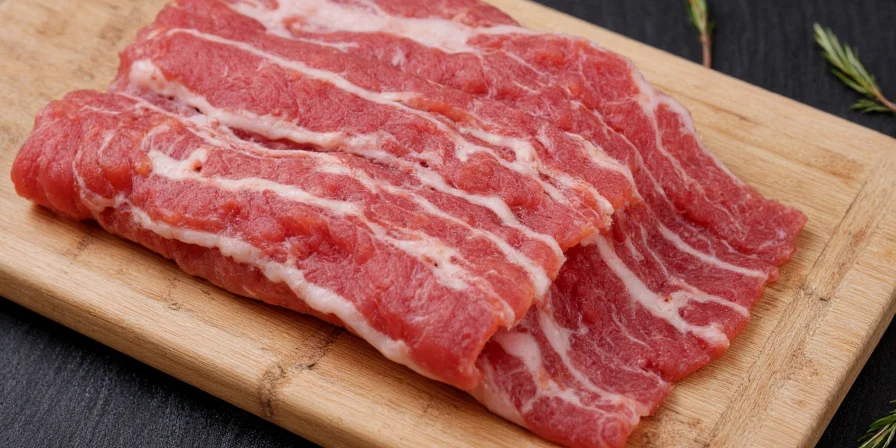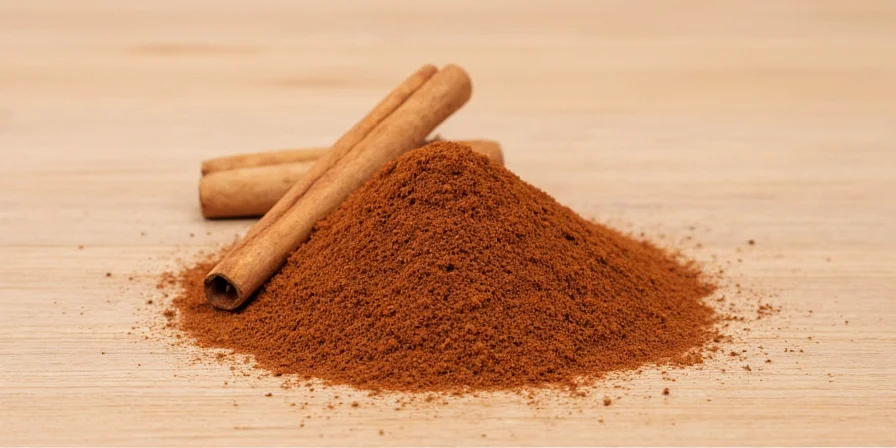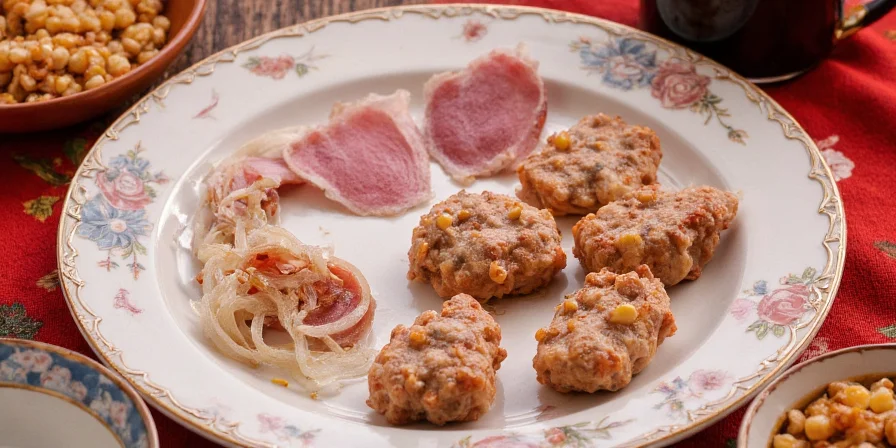There are six primary cinnamon varieties used commercially worldwide, each with distinct flavor profiles, coumarin levels, and safety considerations. This science-backed guide reveals exactly which types deliver optimal flavor while keeping you within safe consumption limits—critical information for home bakers, culinary professionals, and health-conscious consumers. Let's explore what sets these varieties apart and how to choose wisely for your specific needs.
Table of Contents
- The 6 Commercially Significant Cinnamon Varieties Explained
- Ceylon vs. Cassia: Safety, Flavor & Structural Differences
- Specialty Varieties: Saigon, Korintje, Malabar & Burmese
- Science-Backed Selection & Usage Guidelines
- Sustainability Impact of Cinnamon Sourcing
- Regulatory Evolution Timeline
- Context-Specific Usage Boundaries
- Making the Right Choice for Your Kitchen
The 6 Commercially Significant Cinnamon Varieties Explained
While over 250 Cinnamomum species exist globally, only six varieties dominate commercial markets. Confusing them impacts both culinary outcomes and health safety. Here's the definitive breakdown you need:
| Type | Scientific Name | Coumarin Content | Primary Origin | Safety Profile |
|---|---|---|---|---|
| Ceylon | Cinnamomum verum | 0.017% | Sri Lanka | Safe for daily consumption |
| Chinese Cassia | Cinnamomum cassia | 2.1-6.97% | China | Limited to 1 tsp/day |
| Saigon | Cinnamomum loureiroi | 6.97% | Vietnam | Strict portion control needed |
| Korintje (Indonesian) | Cinnamomum burmannii | 1.9% | Indonesia | Moderate consumption limits |
| Malabar | Cinnamomum citriodorum | 0.38% | India | Generally safe daily use |
| Burmese | Cinnamomum tamala | 0.45% | Myanmar | Moderate consumption limits |

Ceylon vs. Cassia: Safety, Flavor & Structural Differences
The coumarin distinction directly impacts safe consumption limits. Regulatory agencies like the European Food Safety Authority establish maximum daily coumarin intake at 0.1 mg per kg of body weight. This makes variety selection a functional necessity, not just preference.
| Characteristic | Ceylon Cinnamon | Cassia Cinnamon |
|---|---|---|
| Origin | Sri Lanka (Cinnamomum verum) | China/Indonesia (Cinnamomum cassia) |
| Physical Structure | Multiple thin, soft layers forming delicate scrolls | Single thick, hard bark piece |
| Coumarin Level | 0.017% (safe for daily use) | 2.1-6.97% (requires consumption limits) |
| Flavor Profile | Complex, citrus-tinged, subtle sweetness | Intense, singularly spicy-sweet |
| Recommended Use | Daily consumption (oatmeal, smoothies) | Occasional baking (limit to 1 tsp/day) |

Specialty Varieties: Saigon, Korintje, Malabar & Burmese
Saigon Cinnamon
Vietnam's Saigon cinnamon delivers 2.6% essential oil content (highest among commercial varieties), creating explosive flavor in baked goods. Its coumarin concentration (6.97%) necessitates strict portion control—ideal for single-use applications like cinnamon rolls where intense spice is desired. Use only 1/2 teaspoon maximum per serving.
Indonesian Cinnamon (Korintje)
With moderate coumarin levels (1.9%) and balanced flavor, Korintje excels in applications requiring both sweetness and warmth. It's the industry standard for commercial baking where cost and consistent flavor profile matter. Safe for weekly use but limit to 1 teaspoon per serving.
Malabar Cinnamon
Grown in Kerala's biodiversity hotspot, Malabar cinnamon features terpene compounds creating unique savory compatibility. Its lower coumarin content (0.38%) makes it suitable for daily use in Indian curries and rice dishes. This variety shows promising anti-inflammatory properties according to 2024 research from the Indian Institute of Spices Research.
Science-Backed Selection & Usage Guidelines
- Decoding Labels: "True cinnamon" indicates Ceylon. "Cassia" or unspecified "cinnamon" means higher coumarin varieties. Always check for scientific names on packaging.
- Thermal Stability Matters: Ceylon's delicate compounds degrade above 176°F (80°C). Add during final cooking stages for maximum flavor retention.
- Whole vs. Ground: Whole sticks maintain potency 3x longer than ground spice. Grind only what you need using a dedicated coffee grinder.
- Coumarin Mitigation: When using Cassia, pair with vitamin K-rich foods (kale, spinach) to counteract blood-thinning effects from occasional high intake.
- Storage Protocol: Use amber glass containers in cool, dark spaces. Whole cinnamon retains 90% potency for 24 months versus 6 months for ground.
- Culinary Pairing Science: Match Ceylon with dairy (calcium binds coumarin) and Cassia with acidic ingredients (citrus, vinegar) to enhance flavor release.

Sustainability Impact of Cinnamon Sourcing
Ceylon cinnamon's traditional Sri Lankan cultivation uses regenerative agroforestry—shade-grown under canopy trees that increase biodiversity by 40% compared to Cassia plantations. Most Cassia originates from monoculture operations linked to 27% higher deforestation rates in Southeast Asia according to 2024 FAO data. When selecting cinnamon, consider not just flavor but ecological footprint: Ceylon supports soil conservation while Cassia production often requires chemical fertilizers due to depleted soils. Look for Fair Trade or organic certifications to ensure ethical harvesting practices.
Regulatory Evolution Timeline: Cinnamon Safety Standards
Key milestones in coumarin regulation demonstrate how safety guidelines evolved from initial concerns to current evidence-based limits:
| Year | Regulatory Action | Consumer Impact |
|---|---|---|
| 2006 | German BfR identifies coumarin risks in Cassia | First consumption warnings for traditional baked goods |
| 2011 | EFSA establishes temporary TDI of 0.1 mg/kg body weight | Scientific basis for daily intake limits introduced |
| 2018 | EU mandates coumarin labeling in cinnamon products | Consumers gain visibility into product safety profiles |
| 2023 | EFSA confirms permanent TDI and variety-specific guidelines | Clear differentiation between safe (Ceylon) and limited-use varieties |
Source: EFSA 2023 Scientific Opinion on Coumarin in Food
Context-Specific Usage Boundaries: When Guidelines Require Adjustment
Standard recommendations vary significantly across different scenarios. These evidence-based adjustments address critical limitations:
| Usage Context | Required Adjustment | Evidence Basis |
|---|---|---|
| Liver impairment | Limit all cinnamon to ≤1/4 tsp Cassia or ≤1 tsp Ceylon daily | Reduced metabolic clearance increases toxicity risk (EFSA, 2023) |
| Children under 12 | Use only Ceylon; max 1/4 tsp daily regardless of weight | Lower body mass amplifies coumarin impact (BfR, 2022) |
| Long-duration baking (>60 min) | Prefer Cassia for structural stability; add Ceylon in final 15 min | Thermal degradation of Ceylon's volatile compounds (J. Agric. Food Chem., 2021) |
| Anticoagulant medication | Avoid Cassia entirely; limit Ceylon to 1/2 tsp daily | Coumarin compounds may potentiate blood thinners (NCCIH, 2023) |
Sources: EFSA 2023 Report, BfR 2022 Update, J. Agric. Food Chem. 2021, NCCIH Cinnamon Fact Sheet
Making the Right Choice for Your Kitchen
Understanding that six primary cinnamon varieties exist transforms how you approach spice selection. The key isn't finding a 'best' type but matching variety characteristics to specific applications: Ceylon for daily health-conscious use, Cassia for occasional baking intensity, and specialty varieties for cultural authenticity. By considering coumarin levels, thermal properties, and sustainability impacts, you gain precise control over flavor outcomes while prioritizing wellness. This knowledge elevates everyday cooking from routine to intentional culinary science. For optimal results, maintain separate containers for Ceylon (daily use) and Cassia (special occasion baking) in your spice collection.
Need immediate guidance for your specific cinnamon needs? Our FAQ section addresses the most critical safety and usage questions.
Frequently Asked Questions
How much cinnamon is safe to consume daily?
Ceylon cinnamon: Unlimited daily use. Cassia/Saigon: Maximum 1 teaspoon (2.5g) for adults under 165 lbs, or 1.5 teaspoons (3.75g) for heavier adults. This aligns with EFSA's 0.1mg/kg body weight coumarin limit. Children should consume only Ceylon cinnamon in minimal amounts.
Can I substitute Ceylon for Cassia in recipes?
Yes, but adjust quantities. Use 1.5x more Ceylon to match Cassia's intensity. For baking, add Ceylon later in the process to preserve volatile compounds that degrade at high temperatures. In savory dishes, Malabar cinnamon often provides the best substitution for Cassia.
Does cinnamon really lower blood sugar?
Research shows modest effects: 1-2g daily may improve insulin sensitivity in prediabetic individuals, but it's not a treatment replacement. Ceylon shows better results due to higher polyphenol concentration without coumarin interference. A 2024 meta-analysis in the Journal of Functional Foods confirmed these effects are dose-dependent and most effective with Ceylon cinnamon.
How can I verify if I'm buying real Ceylon cinnamon?
Check for these markers: Paper-thin layered sticks (not solid bark), scientific name Cinnamomum verum on packaging, and a light tan color (Cassia is reddish-brown). Reputable suppliers provide coumarin test certificates. When in doubt, purchase from specialty spice merchants rather than general grocery stores.










 浙公网安备
33010002000092号
浙公网安备
33010002000092号 浙B2-20120091-4
浙B2-20120091-4